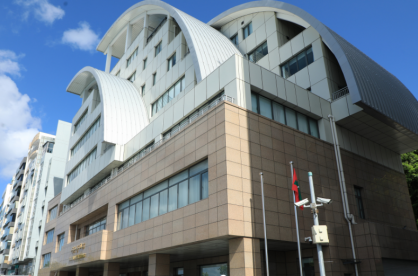The income tax black hole
The inclusion of Article 12.1 creates a huge tax loophole and likely will prove a major obstacle to the progressive tax system introduced to the Maldives in 2010.

The inclusion of Article 12.1 creates a huge tax loophole and likely will prove a major obstacle to the progressive tax system introduced to the Maldives in 2010.

In March 2010, when President Mohamed Nasheed ratified the Tax Administration Bill, it paved the way for the establishment of the first independent tax administration authority; the Maldives Inland Revenue Authority (MIRA). However, many critics and supporters of this reform movement are worried the progress made over the last decade may be undone by the amendments made to the Income Tax Act on 8 July 2021. The bill was passed in a haze, camouflaged amidst unrelated bills and during a period signaling the beginnings of political turmoil – there were more than 50 amendments made to the Act, but the biggest threat is the inclusion of Article 12-1 which gives exemption powers to the President.
Although Ahmed Zahir, the Member of Parliament for Gadhdhoo constituency, in sponsoring the bill said that the objective of the current amendments to the Income Tax Act was 'to strengthen tax administration,' awarding tax exemption powers to the President makes tax administration, as well as credibility and transparency, much weaker. Granted, the law requires Cabinet oversight and approval for projects and business areas to be granted exemptions but does not guarantee accountability and checks and balances that would have been performed by an independent statutory institution such as MIRA in administering the tax – and the Cabinet of course serves at the pleasure of the President.
Similarly, while the law requires some degree of transparency with mandated disclosures of the parties exemptions are granted to, and the duration of the exemption, it does not require disclosure on the total investment amounts, the rates and total taxes exempted, or details of the agreements made with these parties – a fairly disturbing 'oversight' that might of course be corrected if, or once, 'mistakes are made'.
History has shown again and again that in the Maldives, leaving such economic decisions, without limitations, in the hands of politicians have always resulted in corruption. One could argue that this amendment has all the ingredients in the making of another MMPRC corruption scandal – without any oversight by an independent body, and the high prospects of economic rents and gains a company may get from such exemptions, there is ample possibility for kickbacks and bribes for projects and business to be 'qualified' for the list and their 'proposals' being accepted. There is also no cap on the duration the tax exemptions may be granted.
When the MMPRC scandal unfolded, there were reports to suggest that it was a 'vehicle to ensure funding' for the then-ruling party. With the Maldives becoming more and more of a 'particracy,' where political parties are the primary basis of rule, rather than citizens, there is every possibility that this could easily end up another vehicle for funding political activities, within the already ‘corrupt political system,’ in addition to the loss of tax revenues.
It is not easy to estimate an amount for the tax loss, given there are so many ‘grey areas' and discretions given to the President in implementing this tax exemption. However, assuming exemptions are granted for 30 resort developments for a 10-year period, it could range in an amount between USD400 to USD600 million – based on the assumption from current Business Profit Taxes – much higher than the MMPRC embezzlement, which the Asset Recovery Commission currently estimates to be at USD200 million.
More worryingly, senior tax experts have also raised concerns over the possibility of international parties, such as the EU and the Organisation for Economic Co-operation and Development (OECD), blacklisting the Maldives, as such tax exemption practices are considered 'preferential tax treatments' and 'harmful tax practices.' The Maldives graduated from the EU's 'black list' of 'non-cooperative tax jurisdictions' in 2017 and has been on its 'grey list' since then. It was only removed from the 'black list' after various commitments to, and implementation, of tax reforms.
MIRA is a member of the Global Forum on Transparency and Exchange of Information for Tax Purposes, an initiative led by the OECD to improve taxation systems across the world. However, the progress the Maldives has made to date may be jeopardised, as preferential tax treatments under the current amendments to the Income Tax Act may fall afoul of the Base Erosion and Profit Shifting (BEPS) framework committed to by the Forum's members. The BEPS refers to tax planning strategies used by multinational enterprises that exploit gaps and mismatches in tax rules to avoid paying tax. It is estimated that this practice costs countries between USD100 to USD240 billion in annual revenue losses.
According to the IMF, empirical research on such ‘tax incentives’ show that they work in attracting FDI in a limited capacity, but it remains unclear whether they are beneficial overall, since they create more complications and some FDIs may actually crowd out, whereby the aggregate investment and growth do not improve. Moreover, once a system has created the precedence of an exemption for one particular sector or region, the pressure for further ones will increase and this will likely result in further tax losses.
The current amendments do not make it clear the type of tax incentive being offered, but it appears to be more of a tax holiday than a decrease in taxes. More details need to be specified in legislation, and supported regulations, as transparency and predictability are key principles of a robust tax policy and will restrict the scope for corruption. Similarly, clear definitions of the process and how a company will qualify for the exemptions need to be made public. The IMF recommends that the eligibility process be automatic rather than discretionary, to ensure limited possibilities for corruption and political influencing – undoubtedly also working to stifle the usual 'quid pro quo' power broker mentality. Tax experts have also recommended that such tax exemptions, if absolutely required for the country's benefit, be implemented under amendments to the Tax Administration Act, or through new legislation specific for the purpose.
Another crucial piece of legislation that needs to be implemented with immediate effect is one on 'political party financing.' This will ensure more transparency and disclosure in how political parties in the Maldives obtain their funding, limiting the 'political contributions' or 'commissions' taken by politicians on government projects.
Often, corruption and tax evasion feed one another. The current amendments to the Income Tax Act does not clearly define, nor restrict, the scope of this new 'executive magic wand' to ensure it is not misused as another avenue for corruption.



